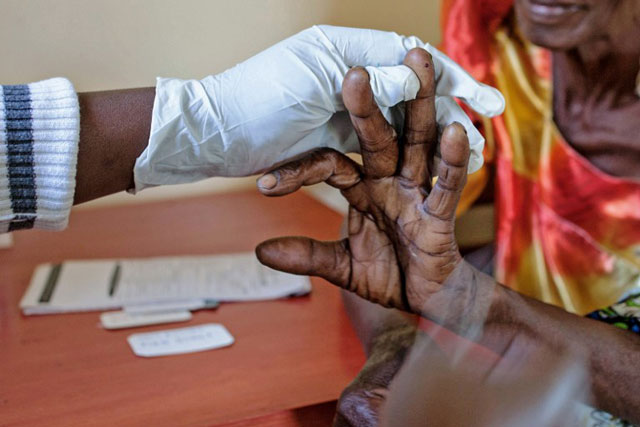
Kampala, Uganda | THE INDEPENDENT | The number of people testing positive for malaria is going down, far away from the surge that was experienced with the onset of rains in June.
The disease had affected half of the country by August with 65 districts reporting increased hospital admissions and at the outpatients’ department of their medical facilities. At the time, the number of malaria cases had increased by over 400,000 from 1 million cases recorded by June last year.
Now, Health Minister Dr Jane Ruth Aceng says that in half of the districts where the surge was seen, hospital reports are showing that the number of patients testing positive for malaria is reducing.
Dr Aceng said that most of the numbers of malaria cases occurred during the rainy season in June to July because many people had stopped sleeping in mosquito nets, yet there were a lot of mosquitoes with the conditions being favourable for breeding.
She said considering this complacency, the Ministry has revamped its campaign of encouraging people to sleep under treated mosquito nets.
She added that as a new strategy to further bring down the malaria numbers, the ministry hopes to start a new campaign in October which will involve distributing nets to schools.
Dr Aceng says that country is considering investing in utilizing new innovations that are helping other countries make strides, for the bigger goal of eradication of malaria. One of the innovations that the World Health Organization (WHO) Country Representative Dr Yona Tegnen recommends is for the country to take part in the search for a vaccine.
Early this month, Kenya became the third country in Africa after Ghana and Malawi to roll out a malaria vaccine that is being piloted.
Known as RTS, S, the vaccine is to be available to children from 6 months of age in selected areas of the country in a phased pilot introduction. It is the first and only vaccine to significantly reduce malaria in children who are among the most affected group.
Malaria claims the life of one child every two minutes and is a leading killer of children younger than 5 years in sub-Saharan Africa.
If it finally passes through WHO prequalification procedures, Yona recommends that Uganda gets on board since even Kenya and Ghana got on board after seeing good results in the pilot studies done in Malawi.
*****
URN
 The Independent Uganda: You get the Truth we Pay the Price
The Independent Uganda: You get the Truth we Pay the Price


